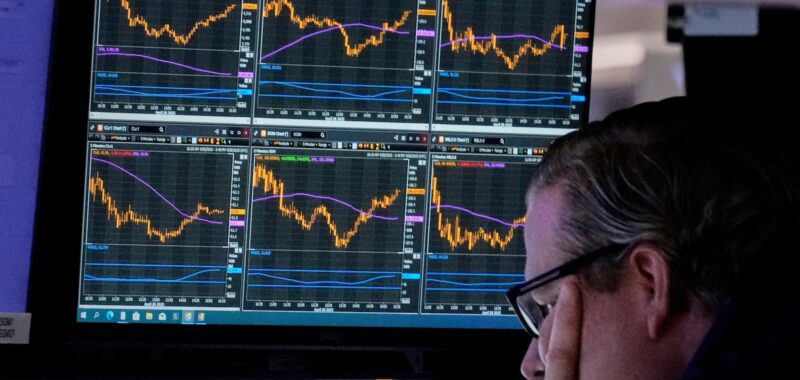HONG KONG — Asian markets advanced Friday after China’s Commerce Ministry said Beijing is evaluating overtures from the U.S. regarding President Donald Trump’s tariffs.
Futures and oil prices advanced.
Hong Kong’s Hang Seng surged 1.7% to 22,493.96, while markets in Shanghai were closed for a public holiday. Taiwan’s benchmark jumped 2.2%.
An unnamed Chinese Commerce Ministry spokesperson was cited as saying that Beijing had taken note of various statements by senior U.S. officials indicating a willingness to negotiate over tariffs.
“At the same time, the U.S. has recently taken the initiative to convey information to the Chinese side on a number of occasions through relevant parties, hoping to talk with the Chinese side. In this regard, the Chinese side is making an assessment,” it said.
Tokyo’s Nikkei 225 picked up 1.1% to 36,844.97, while South Korea’s Kospi rose 0.4% to 2,565.89.
Australia’s S&P/ASX 200 added 1.1% to 8,231.60.
Microsoft and Meta Platforms led Wall Street higher Thursday after the Big Tech companies reported profits for the start of the year that were even bigger than analysts expected.
The S&P 500 rose 0.6% for an eighth straight gain to 5,604.14, its longest winning streak since August.
The Dow Jones Industrial Average added 0.2% to 40,752.96, and the Nasdaq composite climbed 1.5% to 17,710.74.
Microsoft rallied 7.6% after the software giant said strength in its cloud computing and artificial intelligence businesses drove its overall revenue up 13% from a year earlier.
Meta, the parent company of Facebook and Instagram, also topped analysts’ targets for revenue and profit in the latest quarter. It said AI tools helped boost its advertising revenue, and its stock climbed 4.2%.
CVS Health, Carrier Global and a bevy of other companies also joined the stream of better-than-expected profit reports that have helped steady Wall Street over the last week. The S&P 500 is back to within 8.8% of its record set earlier this year, after briefly dropping nearly 20% below the mark.
Still, plenty of uncertainty remains about whether President Donald Trump’s trade war will force the economy into a recession.
General Motors slipped 0.4% after it cut its forecast for profit in 2025, for example. It said it’s assuming it will feel a hit of $4 billion to $5 billion because of tariffs, and it expects to offset at least 30% of it.
McDonald’s fell 1.9% after reporting weaker revenue for the latest quarter than analysts expected, even though its profit was slightly above forecasts.
McDonald’s joined Chipotle and other restaurant chains that have seen customers grow cautious about the economy and inflation.
Consumer surveys show pessimism is shooting higher about where the economy heading. On Thursday, a couple reports about the economy came in mixed, following up on several recent updates that suggested it’s weakening.
The first of the reports said more U.S. workers filed for unemployment benefits last week than economists had forecast, setting the stage for a more comprehensive report on the job market arriving Friday.
The fear on Wall Street is for a possible worst-case scenario called “stagflation,” where the economy stagnates yet inflation remains high. The Federal Reserve has no good tools to fix both such problems at the same time. If the Fed were to try to help one problem by adjusting interest rates, it would likely make the other worse.
Treasury yields swiveled following Thursday’s economic reports. The yield on the 10-year Treasury initially fell below 4.13% after the worse-than-expected update on joblessness. But it later trimmed its losses and rallied to 4.21%. That’s up from 4.17% late Wednesday.
Hopes that Trump may eventually roll back some of his tariffs after reaching trade deals with other countries also helped to support markets.
In other dealings early Friday, U.S. benchmark crude oil gained 42 cents to $59.66 per barrel in electronic trading on the New York Mercantile Exchange.
Brent crude, the international standard, added 40 cents to $62.53 per barrel.
The U.S. dollar rose to 145.36 Japanese yen from 145.40 yen. The euro edged higher, to $1.1306 from $1.1292.
___
AP Business Writers Stan Choe and Matt Ott contributed.

